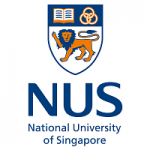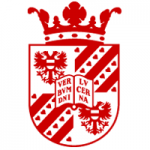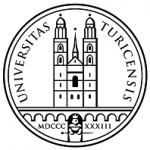项目介绍
The annual intake is in August and ALL applications must be submitted ON-LINE during the application window from 15 October 2019 to 1 March 2020. The System will not accept LATE applications.
Please note that only ONE graduate programme application within SDE will be considered for each application round.AboutCollapse
Master of Science (Real Estate & Urban Economics) & Doctor of Philosophy
Looking at the hottest success stories of some of our graduates, one trend is clear. Master’s and PhD qualifications complement solid industry experience like never before in today’s new economy.
- Master of Science (Real Estate & Urban Economics)
- Doctor of Philosophy
Both are designed to equip candidates with cutting-edge and up-to-date analytical techniques and expertise.
You can learn to apply technical knowledge to real world practical problems.
You can undertake real estate research that has significant contributions to the advancement and understanding of real estate markets, efficiency and knowledge.
These courses also prepare you for an academic career to teach and research in a leading university or higher institution of learning in the Asia-Pacific.
Real Estate Finance and Investment. Urban planning and Institutional Analysis. Housing and Urban Economics. These are just some of the exciting areas of research on offer in an environment which offers plenty of learning opportunities.
Level 5000
RE5001 Real Estate Development (4 MCs) (Semester 1)
This module introduces the fundamental concepts and techniques involved in the real estate development process, recognizing the entrepreneurial and institutional elements in the transformation of existing real estate to its highest and best use. Modeling the sequential event of the real estate development process, the module covers a wide range of issues encountered in the different phases of development – from site evaluation and land procurement, development team assembly, market study and development scheme, construction and project management, project marketing and hand-over of completed projects. (this module will be conducted as a 1 week intensive in week 0 of Semester 1)
RE5005 Real Estate Finance (4 MCs) (Semester 2)
This module examines how real estate can be financed. Students will learn the theories, techniques and practices of corporate finance applicable to property company portfolios. Major topics covered include: sources of finance, financial statement analysis, corporate growth and market valuation, net asset discount, the impact of leverage and dividend policy on capital structure decisions, corporate governance and transparency. In addition, the module deals with the implications of different arrangements such as partnerships, joint-venture structuring, sale-leaseback and other forms of development financing, both bridging and permanent, on deal viability.
RE5009 Commercial Real Estate Appraisa (4 MCs) (Semester 1)
This module seeks to develop an understanding of theory and contemporary approaches to valuation of retail, office and industrial properties. Topics include determination of the capitalization rates across different types of properties; appraisal of freehold and leasehold interests; critical analysis of the valuation approaches adopted for securitized real estate; asset pricing models; and application of option pricing theory to appraise various embedded lease options, investment flexibility and future redevelopment opportunities. Issues related to performance evaluation and index construction will also be covered, recognizing the illiquid and heterogeneous nature of commercial real estate.
RE5013 Urban Policy & Real Estate Markets (4 MCs) (Semester 1)
A distinctive characteristic of real estate is the extensive government regulation of both land and built environment. Focusing on the development of urban and metropolitan areas and the dynamic forces that drive urban growth as well as shape urban spatial configurations, this module examines the impact of government regulations and public policies on real estate markets. Selected topics include urban land rent and location theories, land use structures, community and neighbourhood dynamics, degeneration and renewal in urban dynamics, private-public participation, government policies on public and private housing, and urban fiscal policy including property taxation, local government finance and development and betterment levies.
RE5014 RE Investments Trusts & Property Funds (4 MCs) (Semester 1)
This module seeks to provide a practice-oriented understanding of the evolution of the REIT and property funds as vehicles for real estate investment. It delves into the motivations for creating a REIT and the institutional regimes such as taxation and other regulations that influence how a REIT operates. In addition, it studies the formation of business trusts and property funds to determine the relative merits for sponsors and investors. Topics to be covered include practical issues in property fund management for institutional and high net worth clients; establishing and managing a property fund management; fees of REIT managers; role of sponsors; interested-party transactions; internal versus external management structure. It will also examine the growth strategies of REITs, i.e. organic growth and accretive acquisitions and capital management strategy to drive the development of investment vehicles such as trusts and funds.
RE5015 Spatial Information Systems (SIS) for Urban Planning (4 MCs) (Semester 1)
This module is an introduction to spatial information systems as applied to urban and regional planning. Its primary goal is to help students understand the basic principles of SIS, and to equip students with the state-of-the-practice computing technology in urban planning in a SIS environment. The module emphasizes learning digital visualization methods and spatial analysis techniques through extensive hands-on exercises using real-world datasets.
Level 6000
RE6004 Research Methodology in Real Estate (Semester 2) **
This is an advanced module designed for research students in real estate related areas. The module includes two parts. In the first part, students will learn the mechanics and process of research. The module will train students in the aspects of making good academic arguments, making and evaluating academic claims as well as reasoning, evidencing and warranting research results through a series of carefully designed real estate paper critics. It helps students to appreciate sound and rigorous research.
In the second part, the module will offer advanced econometrics in real estate. Topics cover some major types of econometric models including: classical regression analysis; models for time series data; models with discrete choice data; or models with limited dependent variables. Students will have hands-on practice with statistical software and programming. They will read papers on selected applications of the techniques. It helps students to understand the essences of econometrics in analysing real estate issues.
RE6005 Real Estate Economics Seminar (Semester 2) **
This module provides an overview of theoretical and empirical research focusing on real estate markets and urban economics. It is designed to provide research students with (1) an improved ability to read and criticize theoretical and empirical papers in the field, (2) enhanced skills needed to undertake and present theoretical and empirical research and (3) an appreciation of the main econometric tools and theoretical modeling strategies that have been applied in recent research. The topics covered are intended to expose students to some major contributions in real estate research as well as a consideration of the current trends and methodological advances in recent papers.
RE6006 Real Estate Finance Seminar (Semester 1) **
This module is arranged primarily for research students to discuss advanced topics in real estate finance and review selected research papers. Students in this module will have to be active in the process of learning. The module will consists of paper critiques, topical and conceptual debates on contemporary issues in real estate finance research. Students are expected to carry out comprehensive review of literature and critical thinking. Guided contemporary research topics covered include corporate real estate, real estate securitization, real options, asset pricing, capital structure, and real estate portfolio analysis.
RE6007 Research Topics in Real Estate (Semester 1) **
This self-study module is intended for research graduate students in their second semester. The content of this module will vary according to the research interests of the enrolling student and the supervising staff. Students are required to undertake an independent research project under the supervision of his/her supervisor. They are expected to participate actively in research seminars. Written assignments and seminar attendance and presentations constitute part of the evaluation in this module. Candidates will have to apply concepts learned to their research thesis. Topics that may be offered include Corporate & Securitized Real Estate, Institutional and Spatial Analyses of Real Estate, and Housing Studies. Students are expected to select a research topic, and conceptualize the research question and methodology. They are also required to present the paper in a seminar format.
RE6008 Urban Planning and Development Seminar (Semester 2) **
This module is primarily designed to enable research students to explore approved topics in urban planning and land development in depth. The topics include urban planning theories and methods, global cities, sustainable development of Asian cities and urban development literatures. Specific topics, readings and assignments will be worked out between the students and a lecturer.
| Note: **modules designed specifically for research students |
相关项目推荐
KD博士实时收录全球顶尖院校的博士项目,总有一个项目等着你!






